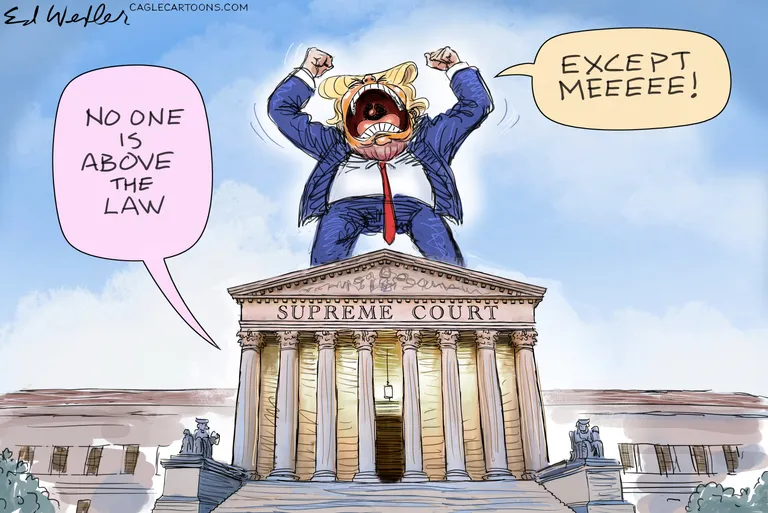|
Jim Brown Audio Player
Getting your Trinity Audio player ready...
|

Monday, July 8th, 2024
Baton Rouge, Louisiana
LOUISIANA COURTS FIRST RULED WHEN A PRESIDENT IS ABOVE THE LAW!
These days, it’s hard to find a political controversy on the national stage that does not, in some way, involve Louisiana. You may be surprised to know that a lawsuit involving land in the Bayou State, and fought out in Louisiana courts, set the precedent of presidential immunity that was the basis of the recent Supreme Court decision giving presidents “absolutely immunity” from prosecution for any “official act.”
Edward Livingston had been a congressman during the time that Thomas Jefferson was the nation’s president. Jefferson confiscated land in Louisiana from Livingston claiming it was federal property and Livingston was furious. He sued Jefferson personally and was successful in winning his case against Jefferson in Louisiana courts. These courts ruled that presidents cannot be above the law. But the U.S. Supreme Court, headed by Chief Justice John Marshall, disagreed saying that a president could not be sued for actions he performed in his official capacity as president.
I know a good bit about being sued in the legitimate capacity of a public official. I have not checked all the state records, but I might have been sued more as a public official than anyone else in Louisiana public office. Here’s the story. I was elected as Louisiana insurance commissioner in 1991, and when I took office the insurance department was in shambles. The previous commissioner had been removed from office for allowing a number of Insurance companies to illegally siphon off millions of dollars that should have been reserved for policyholders. As Commissioner, I shut down 45 financially troubled companies. Knowing that officers of these companies faced major civil and criminal penalties, they pushed the blame of their companies going broke onto the insurance department. Of course, this was really a ruse to buy time.
I was sued both in my capacity s insurance commissioner and also sued personally. The courts, of course, determined that I had no personal liability, and no judgement nor any other penalties were levied against me or the insurance department. Giving a public official immunity for any actions taken in the official capacity is basically how the Supreme Court ruled just last week. This is viewed by a number of political observers as a victory for former President Donald Trump.
In fact, the Court rejected Trump’s assertion that all presidential acts have absolute immunity. If an action is not considered an official act, the president would have no immunity. So for example, when Trump has asserted that if he shot someone on Fifth Avenue, he would be immune. He meant it a joke, but the Court put the brakes on all actions by a president or formal president that would make him immune from criminal prosecution.
Here are few examples of official vs unofficial actions. Paying off a porn star and deducting such payment as a legal expense would certainly not be an action for which a president could claim immunity. How about withholding classified documents once a president leaves the White House? That’s more of a close call. If there was a demand that the documents be returned to the national archives, Trump should have complied. But did it require swat teams and armed federal agents to swoop down on Trump’s Mar-a-Lago residence in Florida to bring them back? This looked to me like overkill.
Calling the Georgia Secretary of State asking him to find 14,000 more votes that would have allowed Trump to carry Georgia? It depends on what Trump was asking. Was he suggesting that the Secretary of State illegally add more votes to the Georgia totals? Or was he merely asking that every effort be made to be sure that every single vote had been counted because Trump needed 14,000 more votes to carry the state.? I think the Georgia prosecutor has a big hill to climb to make her charges stick.
In an 1812 letter to Thomas Jefferson, President John Adams wrote: “Good God! Is a President of the US to be subject to a private action of every individual? This will soon introduce the Axiom that a President can do no wrong; or another equally curious that a President can do no right.”
The Supreme Court, in its recent ruling, did not define “official” or “private” action. So whatever people think of its decision, this matter is going to wind itself through the courts for years to come.
Peace and Justice
Jim Brown
Jim Brown’s syndicated column appears each week in numerous newspapers throughout the nation and on websites worldwide. You can read all his past columns and see continuing updates at http://www.jimbrownusa.com.


